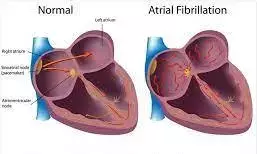- Home
- Medical news & Guidelines
- Anesthesiology
- Cardiology and CTVS
- Critical Care
- Dentistry
- Dermatology
- Diabetes and Endocrinology
- ENT
- Gastroenterology
- Medicine
- Nephrology
- Neurology
- Obstretics-Gynaecology
- Oncology
- Ophthalmology
- Orthopaedics
- Pediatrics-Neonatology
- Psychiatry
- Pulmonology
- Radiology
- Surgery
- Urology
- Laboratory Medicine
- Diet
- Nursing
- Paramedical
- Physiotherapy
- Health news
- Fact Check
- Bone Health Fact Check
- Brain Health Fact Check
- Cancer Related Fact Check
- Child Care Fact Check
- Dental and oral health fact check
- Diabetes and metabolic health fact check
- Diet and Nutrition Fact Check
- Eye and ENT Care Fact Check
- Fitness fact check
- Gut health fact check
- Heart health fact check
- Kidney health fact check
- Medical education fact check
- Men's health fact check
- Respiratory fact check
- Skin and hair care fact check
- Vaccine and Immunization fact check
- Women's health fact check
- AYUSH
- State News
- Andaman and Nicobar Islands
- Andhra Pradesh
- Arunachal Pradesh
- Assam
- Bihar
- Chandigarh
- Chattisgarh
- Dadra and Nagar Haveli
- Daman and Diu
- Delhi
- Goa
- Gujarat
- Haryana
- Himachal Pradesh
- Jammu & Kashmir
- Jharkhand
- Karnataka
- Kerala
- Ladakh
- Lakshadweep
- Madhya Pradesh
- Maharashtra
- Manipur
- Meghalaya
- Mizoram
- Nagaland
- Odisha
- Puducherry
- Punjab
- Rajasthan
- Sikkim
- Tamil Nadu
- Telangana
- Tripura
- Uttar Pradesh
- Uttrakhand
- West Bengal
- Medical Education
- Industry
Still not enough evidence to recommend atrial fibrillation screening: USPSTF

There is still not enough evidence to recommend atrial fibrillation screening according to a latest recommendation by US Preventive Services Task Force as published in the JAMA.
Atrial fibrillation (AF) is the most common cardiac arrhythmia. The prevalence of AF increases with age, from less than 0.2% in adults younger than 55 years to about 10% in those 85 years or older, with a higher prevalence in men than in women. It is uncertain whether the prevalence of AF differs by race and ethnicity. Atrial fibrillation is a major risk factor for ischemic stroke and is associated with a substantial increase in the risk of stroke. Approximately 20% of patients who have a stroke associated with Atrial fibrillation (AF) are first diagnosed with Atrial fibrillation (AF) at the time of the stroke or shortly thereafter.
To update its 2018 recommendation, the US Preventive Services Task Force (USPSTF) commissioned a systematic review on the benefits and harms of screening for Atrial fibrillation (AF) in older adults, the accuracy of screening tests, the effectiveness of screening tests to detect previously undiagnosed Atrial fibrillation (AF) compared with usual care, and the benefits and harms of anticoagulant therapy for the treatment of screen-detected Atrial fibrillation (AF) in older adults.
Adults 50 years or older without a diagnosis or symptoms of Atrial fibrillation (AF) and without a history of transient ischemic attack or stroke.
Thus, The U.S. Preventive Services Task Force (USPSTF) concludes that the current evidence is insufficient to make a recommendation about screening for atrial fibrillation (AF). This statement applies to adults age 50 or older without a diagnosis or symptoms of AF and without a history of transient ischemic attack or stroke. Atrial fibrillation is the most common cardiac arrhythmia and is a major risk factor for ischemic stroke and is associated with a substantial increase in the risk of stroke. The USPSTF routinely makes recommendations about the effectiveness of preventive care services and this recommendation replaces the 2018 USPSTF recommendation statement on screening for AF with electrocardiogram (ECG). In 2018, the USPSTF concluded that the evidence was insufficient to assess the balance of benefits and harms of using ECG to screen for AF. For the current recommendation statement, the USPSTF expanded its review to include other screening tests in addition to ECG. The USPSTF again concludes that the evidence is insufficient to assess the balance of benefits and harms of screening for AF in asymptomatic adults.
Reference:
Screening for Atrial Fibrillation: US Preventive Services Task Force Recommendation Statement by US Preventive Services Task Force published in the JAMA.
Dr. Shravani Dali has completed her BDS from Pravara institute of medical sciences, loni. Following which she extensively worked in the healthcare sector for 2+ years. She has been actively involved in writing blogs in field of health and wellness. Currently she is pursuing her Masters of public health-health administration from Tata institute of social sciences. She can be contacted at editorial@medicaldialogues.in.
Dr Kamal Kant Kohli-MBBS, DTCD- a chest specialist with more than 30 years of practice and a flair for writing clinical articles, Dr Kamal Kant Kohli joined Medical Dialogues as a Chief Editor of Medical News. Besides writing articles, as an editor, he proofreads and verifies all the medical content published on Medical Dialogues including those coming from journals, studies,medical conferences,guidelines etc. Email: drkohli@medicaldialogues.in. Contact no. 011-43720751


